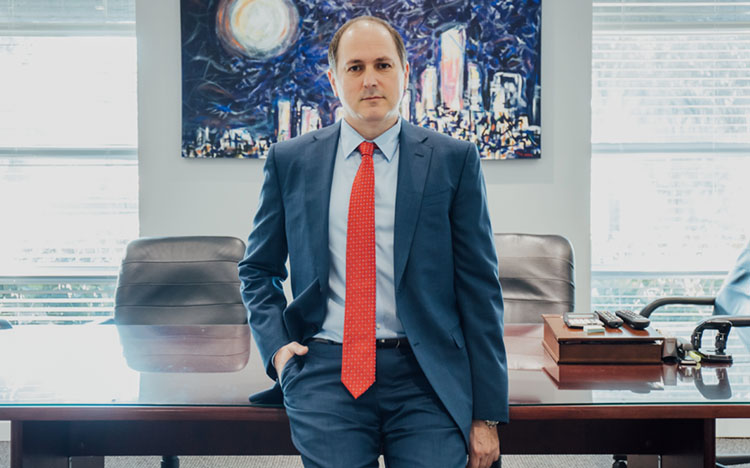When you’re behind on your mortgage, losing income to wage garnishment, or are struggling to make ends meet due to debt repayment, bankruptcy may be the best option to help you get back on your feet. When you need a Chapter 13 bankruptcy attorney to help you navigate the complex process, Stiberman Law is on your side.
Since 1998, Stiberman Law has been dedicated to helping people build a new financial future. With knowledgable counsel, advice rooted in experience, and dedicated advocacy to your rights and best interests, our experienced bankruptcy lawyers and professional support staff work to secure the best practical outcome so you can move forward, free from debt.
Chapter 13 bankruptcy is sometimes referred to as a “wage earner’s bankruptcy.” Instead of a bankruptcy trustee selling your assets and using the proceeds to pay off creditors, which is the Chapter 7 bankruptcy process, Chapter 13 restructures your debt. With this method, your debts, including the amount you’re behind on your mortgage, student loan payments, credit card debts, and other unsecured debts, are rolled into a single monthly payment plan, and the payment you agree to make is based on your monthly disposable income.
Let’s look more closely at the Chapter 13 bankruptcy process, so you know what to expect.
As soon as your Chapter 13 bankruptcy filing goes into effect, federal law requires that all debt collection attempts are placed under an automatic stay. This means that any attempt to collect a debt must stop, including letters and phone calls, wage garnishment, and legal proceedings.
During your case, you and your bankruptcy attorney will work together to provide the bankruptcy court with the following information:
Using the information, you and your bankruptcy lawyer will submit a repayment plan in which your disposable income after necessities are paid must go toward paying off your debt. After you submit the plan, the bankruptcy judge assigned to your case can approve or deny it.
Once the payment plan is accepted, you’ll be assigned a bankruptcy trustee who will disperse your monthly payment to your creditors. Higher priority debt, including catching up child support, student loans, and mortgage payments are paid first, with unsecured, lower priority debt getting what’s leftover.
The United States bankruptcy code requires a minimum of three years on a repayment plan, but the judge may require up to five years of payments. In order to remain in good standing, you must make your monthly payment to the bankruptcy trustee on time and in full. Once you’ve completed the determined tme frame and number of payments, eligible unsecured debt is discharged, absolving you of having to pay anymore on the debt. You will also be caught up on your mortgage, car payments, and other debt you can’t discharge.
Get Immediate Legal Help
Schedule a free consultation by filling out the form below or Call us (954) 932-7804
Business Hours
Mon-Fri 8:00 am to 8:00 pm
Saturday 9:00 am to 6:00 pm
Speaking to our bankruptcy law firm is always 100% confidential.

All debt, including any amount you’re behind on your car loan or mortgage, is included in your Chapter 13 repayment plan so you can get caught up and back in good standing with your creditors, while also being absolved of certain debts at the end of the repayment period. However, bankruptcy laws have very strict guidelines regarding what debts can and can not be discharged.
Most unsecured debts can be discharged, including:
Debts that can’t be discharged in Chapter 13 bankruptcy include:
Filing bankruptcy is a complex legal proceeding that requires accurately filling out forms, declaring all types of income, and submitting a payment plan. Mistakes can be costly and extend the bankruptcy process if you try to navigate this on your own.
Having an experienced bankruptcy attorney on your side ensures that you have legal counsel with in-depth knowledge and can not only assist you but who can also advocate for you. At Stiberman Law, our team of bankruptcy lawyers will analyze your finances, including your debt and income, to help you choose the best method of debt relief, whether that is filing Chapter 13 bankruptcy, Chapter 7, or even debt consolidation.
Our bankruptcy law firm strives to make the process as smooth and stress-free as possible, including:Our bankruptcy law firm strives to make the process as smooth and stress-free as possible, including:

We understand that Chapter 13 is complex and you probably have a lot of questions. To help you get a better idea of whether this option is right for you, our bankruptcy lawyer is sharing our most frequently asked questions about this topic.
In order to file for Chapter 13 bankruptcy:
Federal bankruptcy law requires the United States courts to charge a $235 filing fee and a $75 administrative fee. You are able to pay in installments if you show proof of hardship. Bankruptcy attorney fees vary, but often, they will be included in your Chapter 13 repayment plan
No. The goal of Chapter 13 bankruptcy is to keep you from losing any of your property while getting out of debt. If you have fallen behind on mortgage payments or the foreclosure process has started, your repayment plan can restructure the amount you are behind into your repayments. You’ll continue making your regular mortgage payments, but as long as you keep up with these and maintain your monthly repayment plan, you’ll get back into good standing with your lender and avoid losing your home.
If you fall behind or miss payments, you should contact your bankruptcy attorney immediately to know the next step to take. Often, this means contacting the trustee to inform them of financial hardship. If you don’t contact the bankruptcy trustee, they will report the delinquency to the court where the judge may dismiss your case. In the event that your bankruptcy case is dismissed prior to completing the repayment plan, you will have to return to paying creditors directly or convert to a Chapter 7 bankruptcy where you may lose your assets
If you’re struggling to keep up with your bills or make ends meet due to credit card or medical debt, you need to speak with a Chapter 13 bankruptcy attorney in Palm Beach to learn more about your options. At Stiberman Law, our goal is to help you overcome your financial problems so you can move forward with confidence in your financial health. To schedule a free initial consultation, call our law firm at (954) 932-7804 or fill out the form below to get started.
Speaking to our law firm is always 100% confidential. We do our best to respond to inquiries in under 24 hours.

We’ll get in touch as soon as possible.